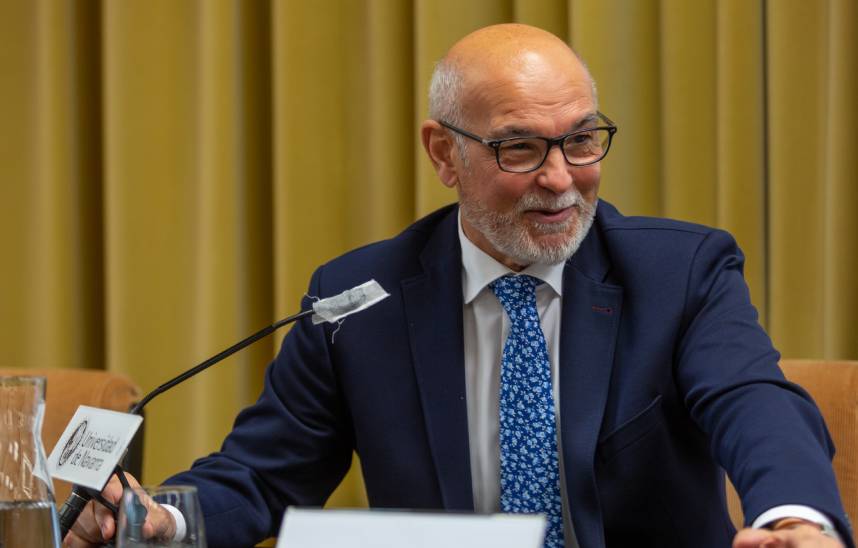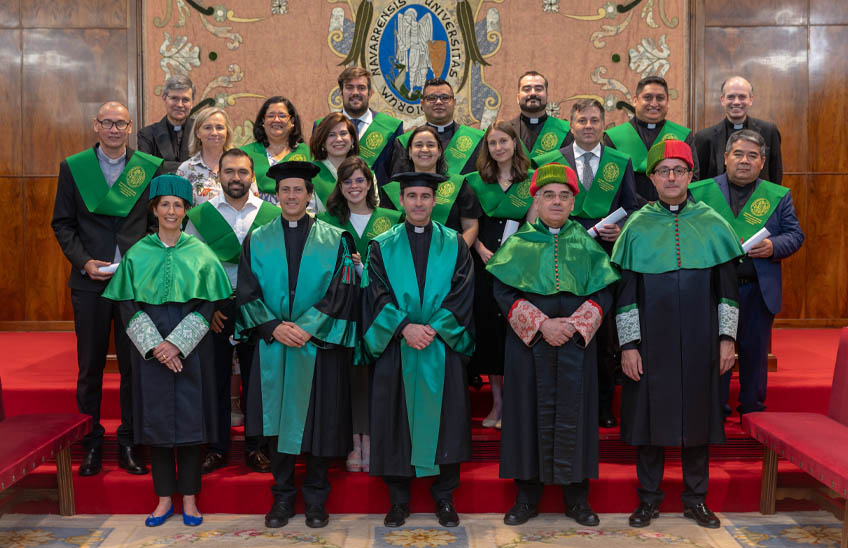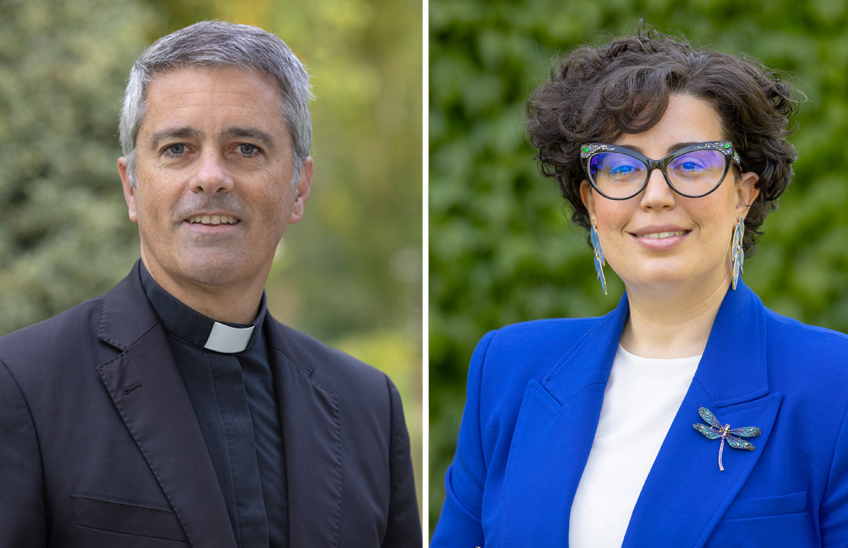Juan José González Rus: "It is logical and legitimate for the State to ask the Church to organise itself properly in order to avoid certain risks".
The Full Professor of Criminal Law of the University of Cordoba and partner of the criminal law firm González Rus & Palma Herrera participated at the University of Navarra in the Symposium 'The criminal liability of legal persons. Implications for the Church and canonical entities'.

FotoManuelCastells/Juan José González Rus, during his speech at the Symposium.
07 | 04 | 2022
"It is logical and legitimate for the State to ask the Church to organize itself adequately to avoid certain risks". This was stated at the University by Juan José González Rus, Full Professor of Criminal Law of the University of Cordoba. The expert participated in the roundtable 'La implantación del compliance en diócesis y entidades' at the University of Cordoba. XV International Symposium of high school Martín de AzpilcuetaThis time focused on 'The criminal liability of legal persons. Implications for the Catholic Church and canonical entities'.
The Symposium was attended by 12 professors from Spain, Italy and the United States. More than 100 experts from various countries (France, Portugal, Chile, Peru) and representatives of 20 Spanish dioceses participated.
In his speech, Professor González Rus recounted his experience in drawing up the compliance programme in the Diocese of Córdoba. He pointed out that it had been a very complex work, although "strictly necessary", given that the Church has its own organisational model: "It is not possible, nor do I believe it is the goal, to turn the Church into just another business. The legal persons of the Church must respond in criminal terms, but they must do so in accordance with the characteristics of the Church's institutions. It is true that it carries out activities in the social environment in which certain conducts can occur that affect the legal assets of the faithful. This happens to any social agent".
Professor González Rus stressed that the criminal compliance programme has a dual dimension: on the one hand, to establish organisational and behavioural measures that prevent and try to control the risks arising from the activity of the legal person; and on the other hand, to exonerate the legal person from criminal liability in the event that it is proven that they had reasonably foreseen how to avoid such crimes within their organisation.
He recalled that, due to the development and scope of the Church's activity, it has taken three years to find a programme that responds to the needs of the law adapted to this subjectof entities: "Each official documenthas its own skill, and each official documentmust answer for the decisions it takes in the exercise of this vicarious or ordinary executive power, according to each case".
"The State recognises the Church's ability to organise itself as it sees fit".
On the particularities of the Catholic Church as a legal person, he pointed out that Church entities are not just another legal person subjectbecause in their exercise they protect and make possible the developmentof constitutional and fundamental rights: "The Spanish State recognises the Catholic Church's capacity to organise itself as it sees fit in order to achieve its pastoral and welfare aims. This capacity has been translated by the Catholic Church into the Canon Law, its own organisational model, effective, improvable, but which has to be the point of reference letteron which compliance programmes are drawn up".
The roundtablewas moderated by Diego Zalbidea, professor at the University of Navarra, and also included the participation of Jaime Badiola, bursar of the Spanish Province of the Society of Jesus and one of the authors of its compliance programme.


